As we clamor to optimize for AI search visibility, I’ve seen suggestions that we should update pages more frequently to boost their chance of being cited.
To test the theory, we used data from Ahrefs Brand Radar to extract 16.975 million cited URLs from across ChatGPT, Perplexity, Gemini, Copilot, AI Overviews, and the good old-fashioned organic Google SERPs. We then calculated…
- The average number of days since the cited articles were published (using the date the articles were first seen by our crawler), and
- The average number of days since the cited articles were last updated (using the last published date from our Content Explorer database)
…to see if AI assistants really “prefer” fresher content when compared to traditional Google Search.
The data for this research comes from Ahrefs’ Brand Radar. Discover what AI assistants say about your brand, reach new audiences, and turn AI search into your next growth channel.
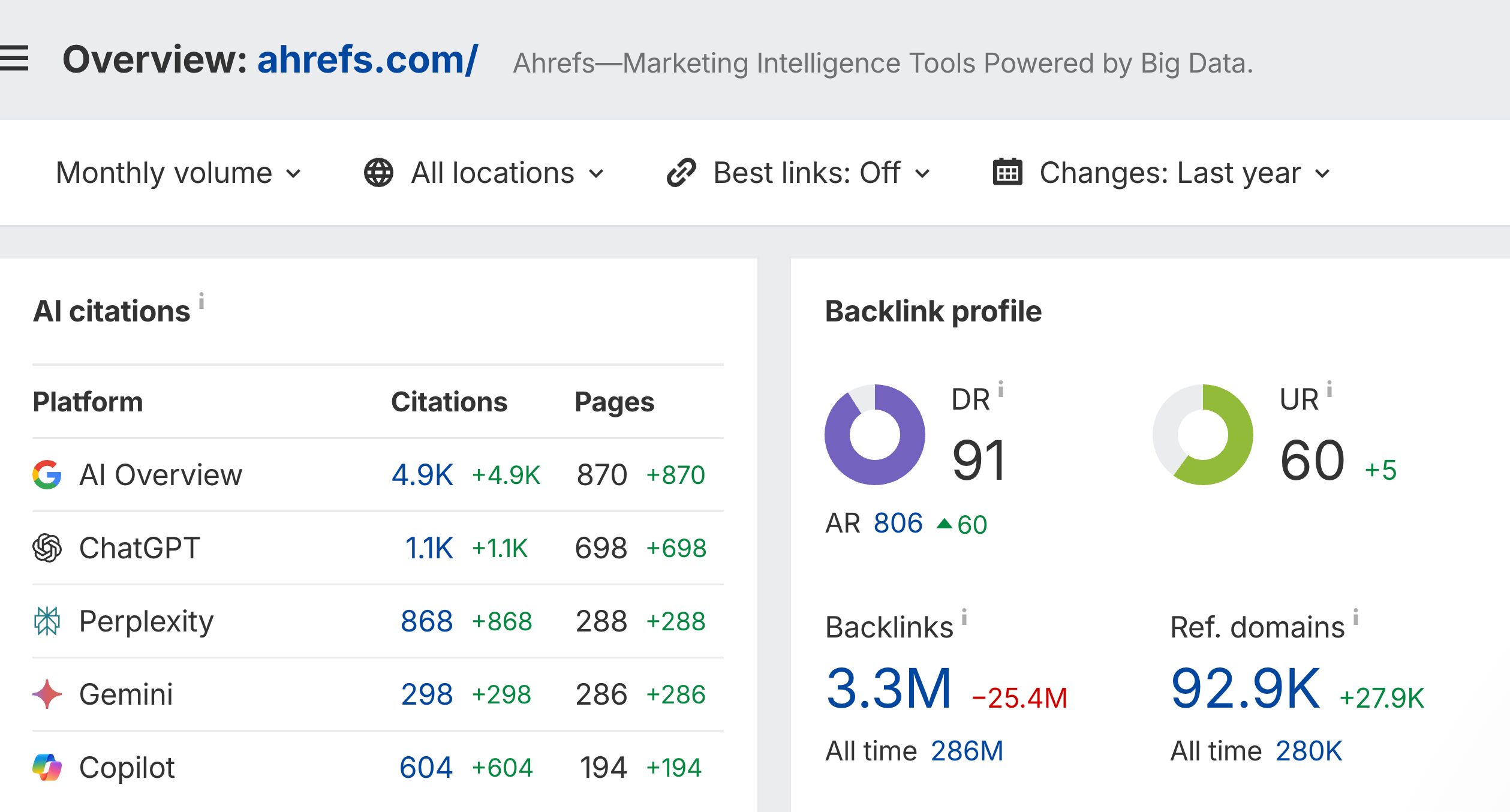
- Compared to traditional search results, AI assistants prefer citing fresher content.
- The average age of URLs cited by AI assistants is 1064 days, compared to 1432 days for URLs in organic SERPs—25.7% “fresher”.
- Google’s AI Overviews and organic search results are the most likely to cite older pages.
- ChatGPT is most likely to cite newer pages.
- Perplexity and ChatGPT order their in-text references from newest to oldest.
If we average the age of cited URLs in all positions across ChatGPT, Perplexity, Copilot and Gemini, we get an average time since publication of 1064 days, or 2.9 years. For the organic SERP, the average time since publication is 1432 days, or 3.9 years—one full year older.
Looking at this alone, it seems that AI assistants have a clear preference for newer URLs, with cited URLs being, on average, 25.7% “fresher” than URLs in organic search results ((1432-1064)/1432).
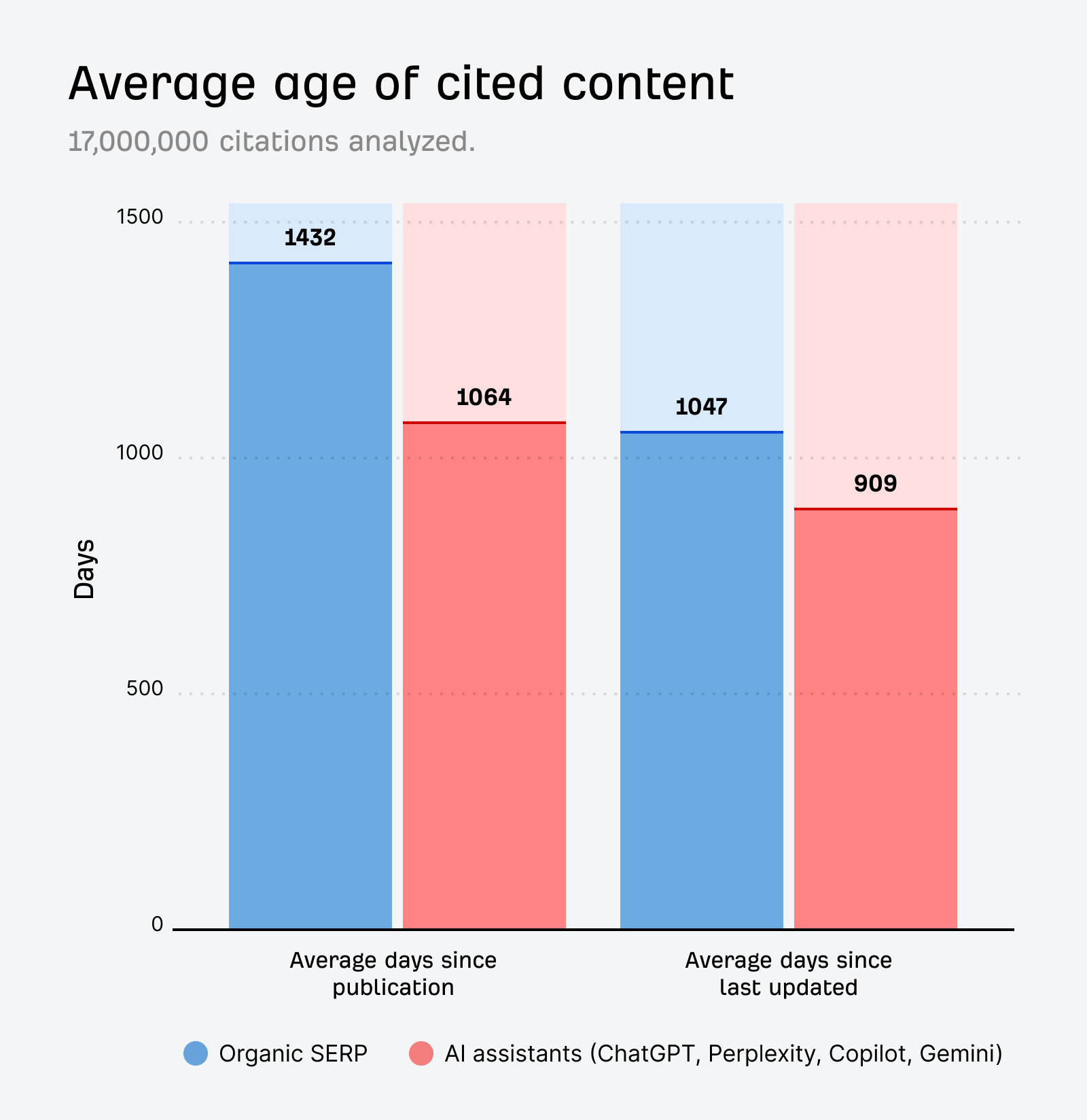
Looking at the average time elapsed since articles were last updated, we find a similar story.
AI assistants show a preference for more recently updated content, with an average time elapsed since last update of 909 days, compared with 1047 days for the organic SERP—a smaller difference of 13.1% ((1046-909)/1046).
If we break the data out, we get a clearer idea of the “freshness” preference of each AI assistant and search platform.
Google’s top three AI Overview citations show the strongest preference for older content, with the average cited article being over 1432 days (3.9 years) old, and last updated 1047 days (2.9 years) ago—very close to the average age of URLs in Google’s organic SERP.
Perplexity’s in-text citations show the next strongest preference for older content (1166 days), followed by Gemini (1118 days), then Copilot (1056 days), then ChatGPT’s in-text references (1023 days) and citations (958 days).
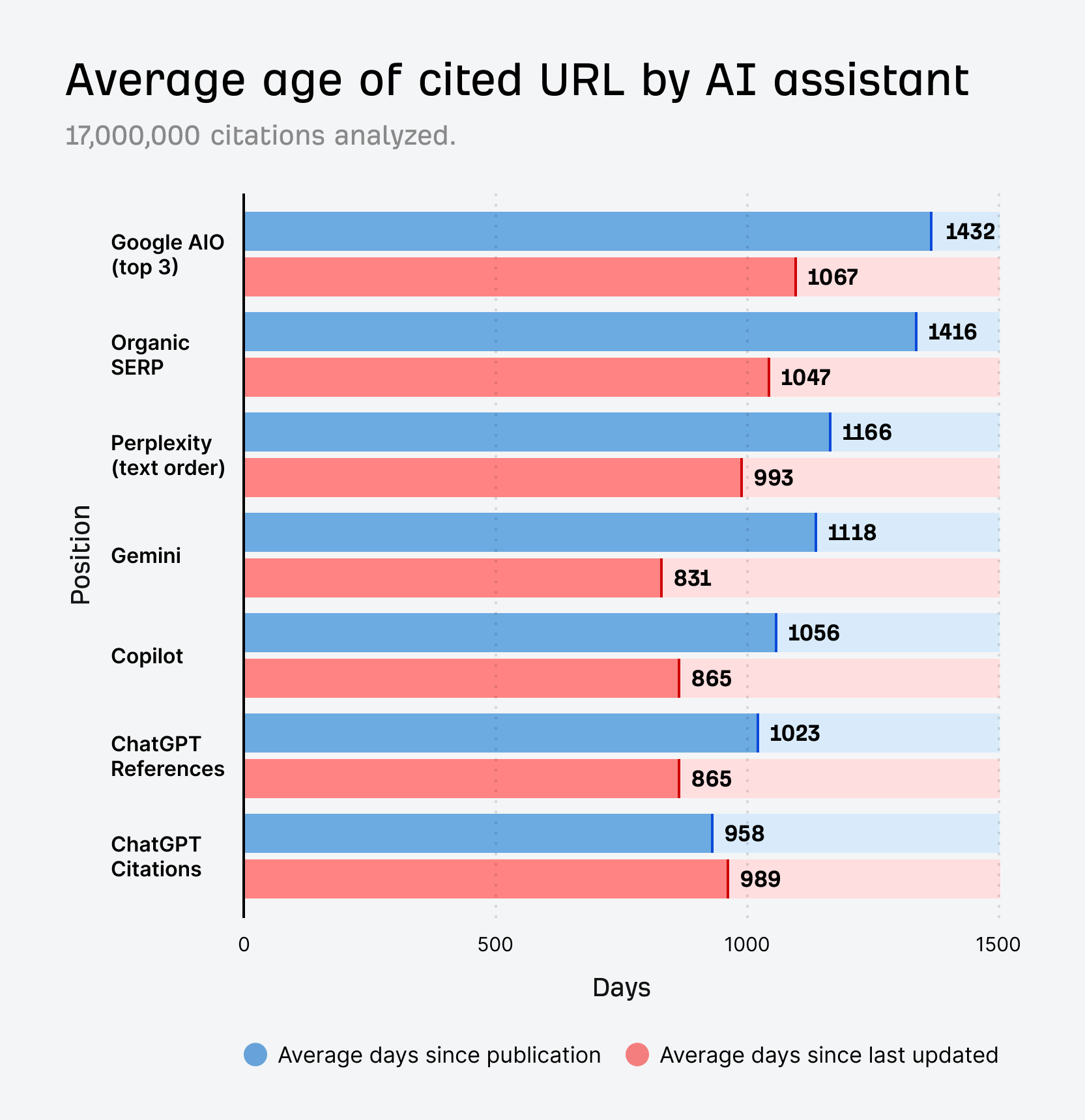
Here’s the data in table form:
| AI search platform | Average days since publication | Average days since last updated |
|---|---|---|
| Google AIO (top 3) | 1432 | 1067 |
| Organic SERP | 1416 | 1047 |
| Perplexity (text order) | 1166 | 993 |
| Gemini | 1118 | 831 |
| Copilot | 1056 | 865 |
| ChatGPT (references) | 1023 | 865 |
| ChatGPT (citations) | 958 | 989 |
If we use the organic search results as a baseline, we can more easily see the extent to which each AI assistant prefers to cite newer content.
Focusing on the days elapsed since publishing, ChatGPT shows the strongest preference for new content, preferring to cite URLs that are 393 days newer than organic Google results in their in-text references, and a whopping 458 days newer in their citations.
Compared to the organic SERP, all AI assistants show a clear preference for fresher content—except Google’s AI Overviews, which cites content that is 16 days older, on average.
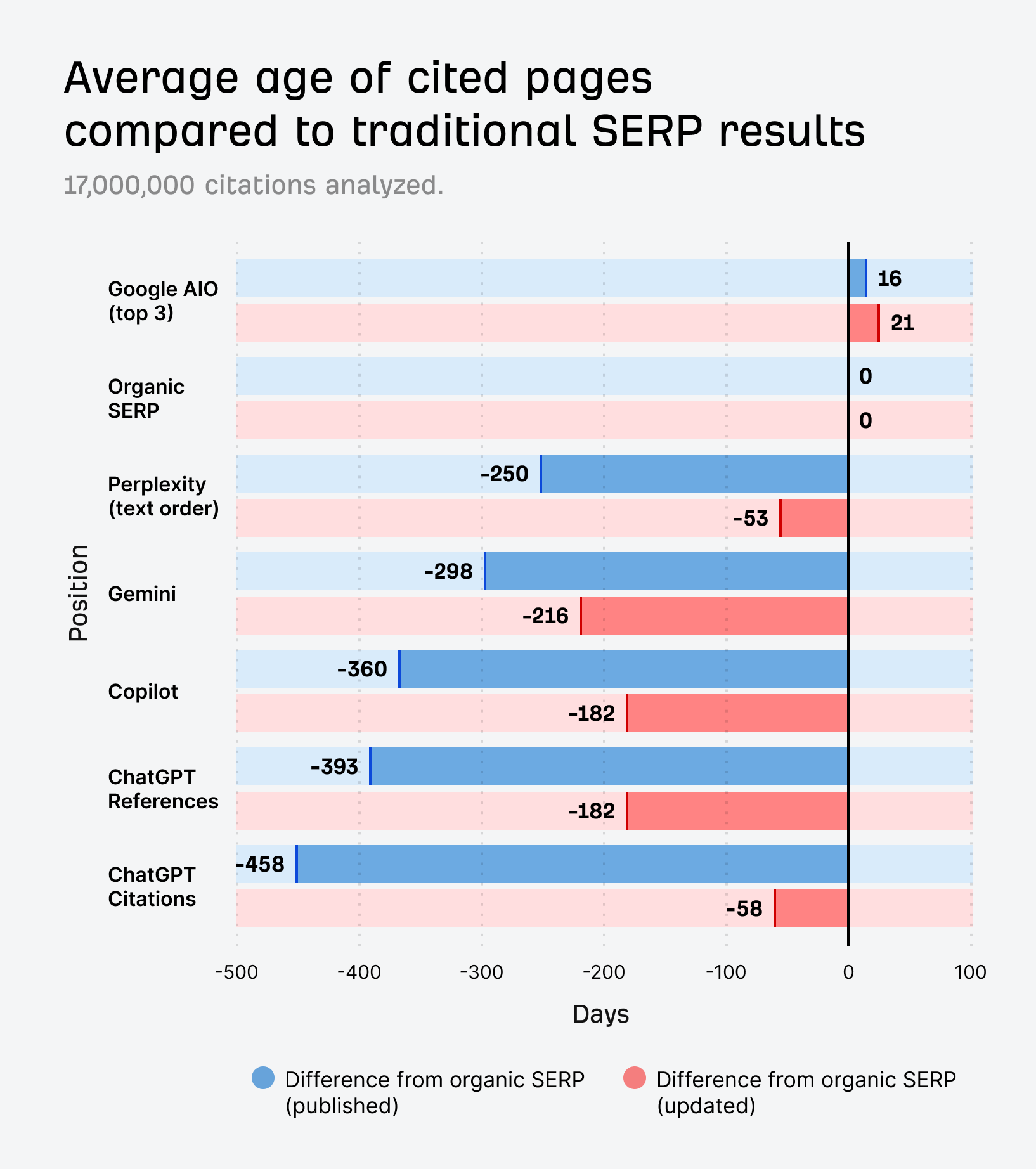
Here’s the data:
| AI search platform | Difference from organic SERP (published) | Difference from organic SERP (updated) |
|---|---|---|
| Google AIO (top 3) | 16 | 21 |
| Organic SERP | 0 | 0 |
| Perplexity (text order) | -250 | -53 |
| Gemini | -298 | -216 |
| Copilot | -360 | -182 |
| ChatGPT (references) | -393 | -182 |
| ChatGPT (citations) | -458 | -58 |
We can also see how the age of cited URLs varies by their position. Here’s the graph showing the average time since publication for positions 1 through 10.
The organic SERP results suggest that older results are more likely to appear in high-ranking positions, while the AI assistants each show a relatively flat trend, with most cited URLs being relatively close in age.
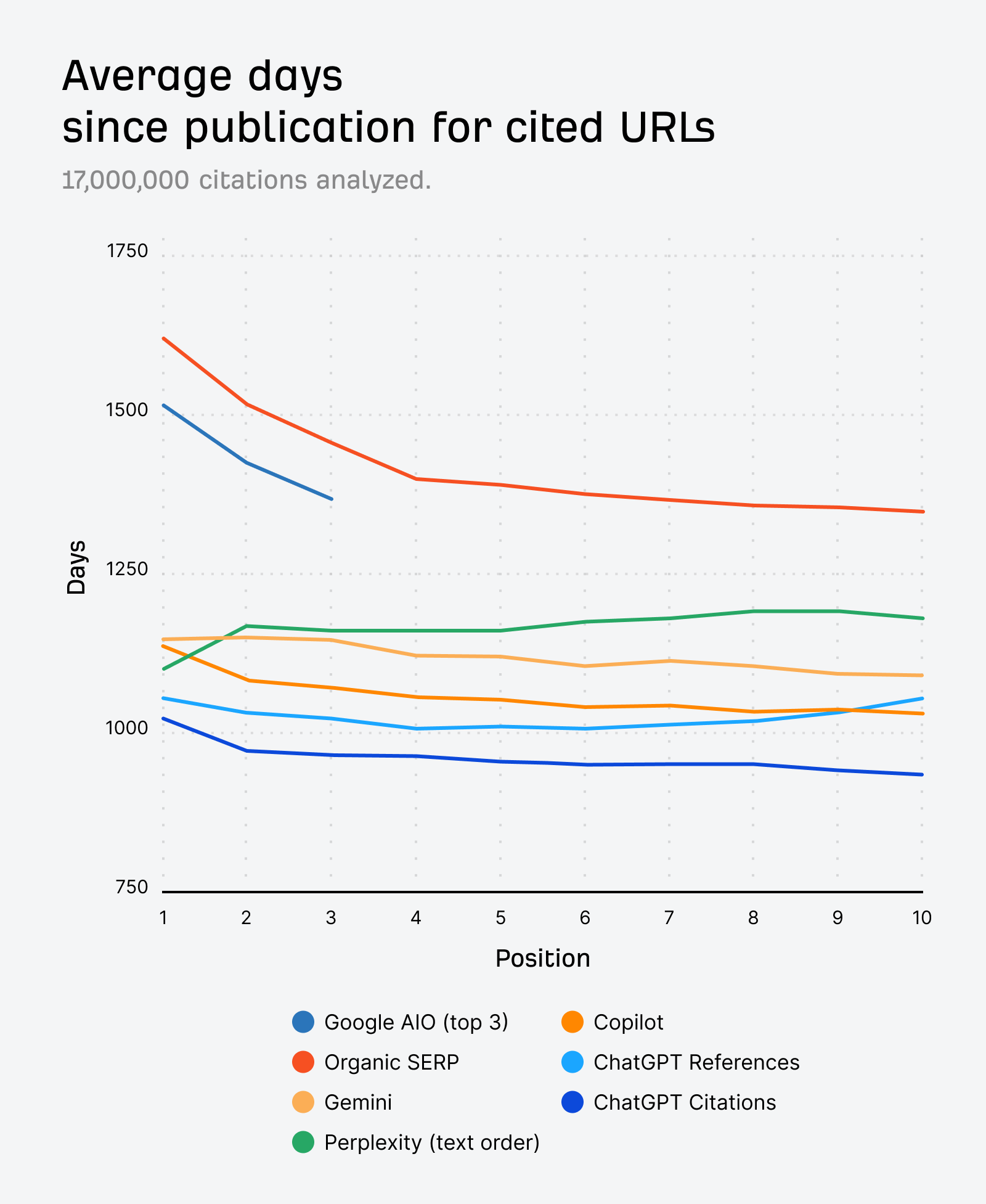
Looking at the average time since cited articles were last updated, both ChatGPT’s and Perplexity’s in-text references follow the same citation pattern, seemingly ordering references from newest to oldest.
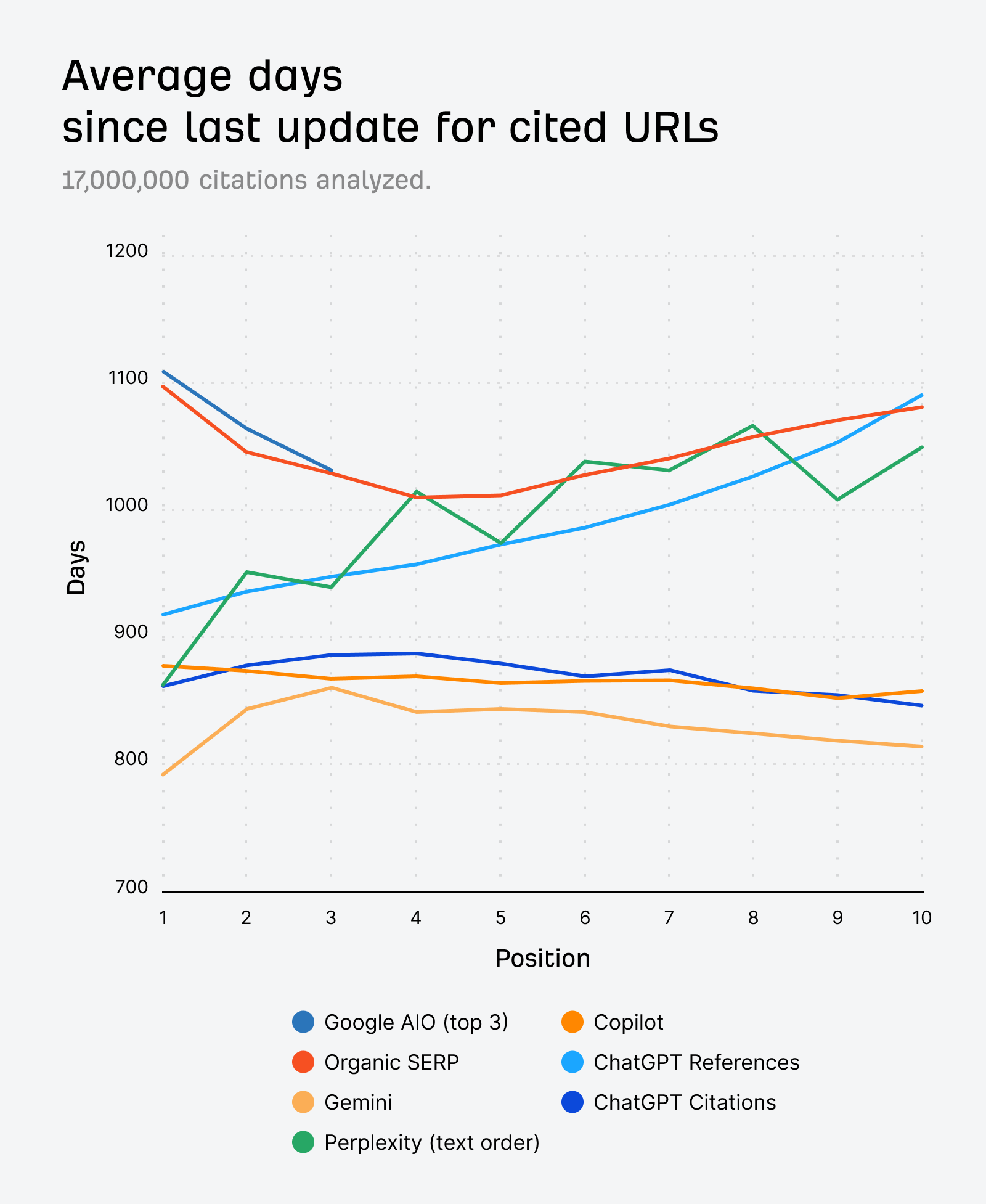
This pattern is clearer if we look at the correlation between the order of cited URLs and their age (excluding AI Overviews).
Most platforms show a negative correlation between citation and content age, suggesting that older content is usually cited first (and ranked higher in the organic SERP).
But Perplexity and ChatGPT’s references both show a positive correlation between citation order and content age, with newer content being cited first. This seems like intentional age-related ordering in their in-text references.
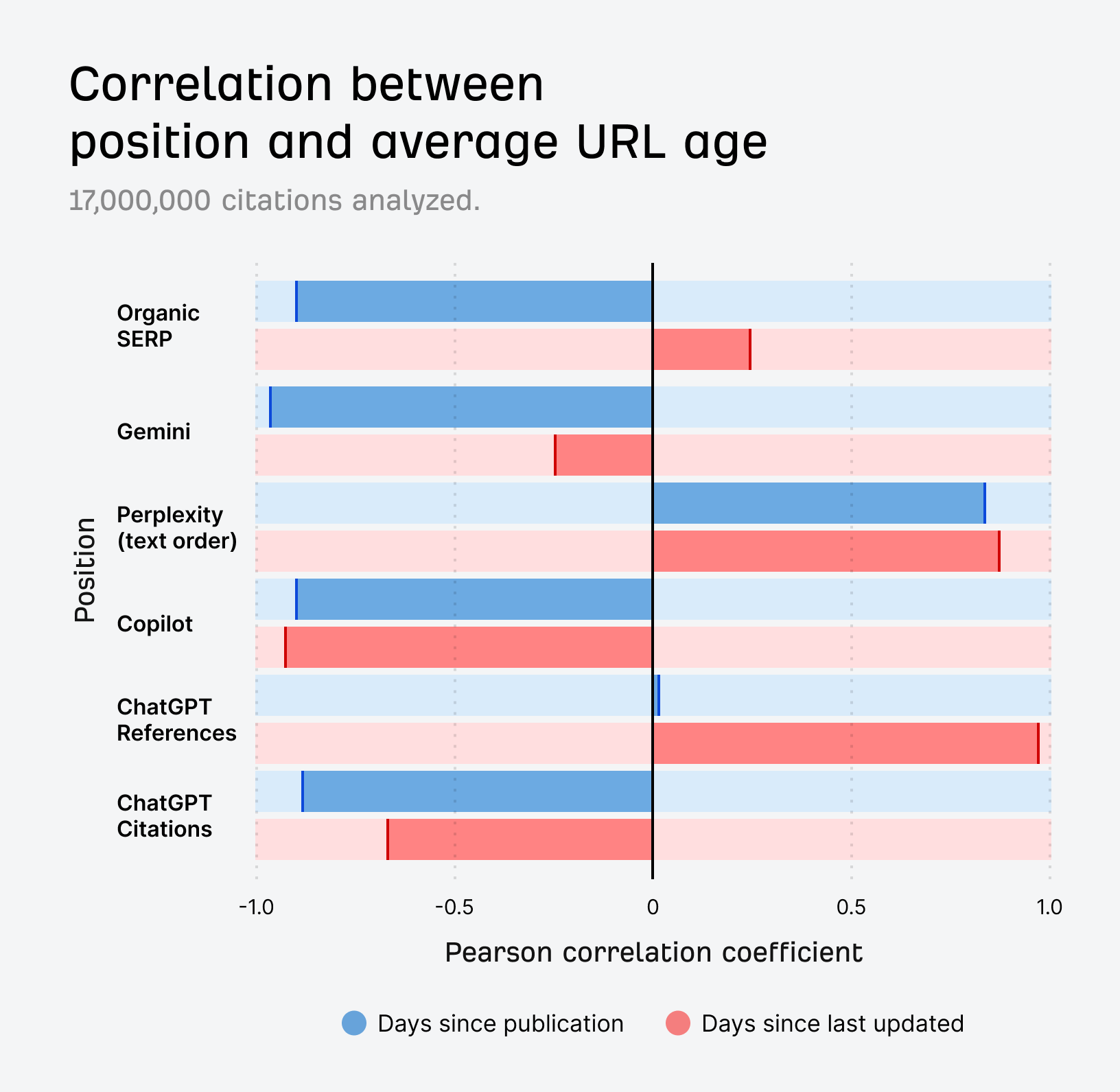
Final thoughts
When compared to traditional search results, AI assistants seem to have a preference for citing newer, fresher content. To improve your LLM visibility, there may be some benefit to regularly updating content.
But I can’t say this without issuing a few caveats and cautions:
- The average age of cited ages is still 2.9 years. Like traditional search, AI assistants still prefer citing long-lived content.
- Google is the least influenced by content freshness, and Google is still where the majority of searches happen.
- Google’s John Mueller has warned against updating publish dates without any corresponding changes in the page content.
- Content freshness is one among many factors that influence visibility. Low-quality, irrelevant content that’s updated every day will not have a magic positive effect on your visibility in AI search.
- Every choice has an opportunity cost, and I suspect that most brands will see better results from creating new, high-quality content than they will from committing resources to extremely frequent content updating.
Comments or feedback on this research? Let me know on LinkedIn.


